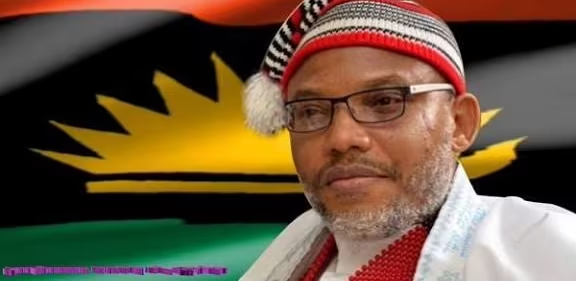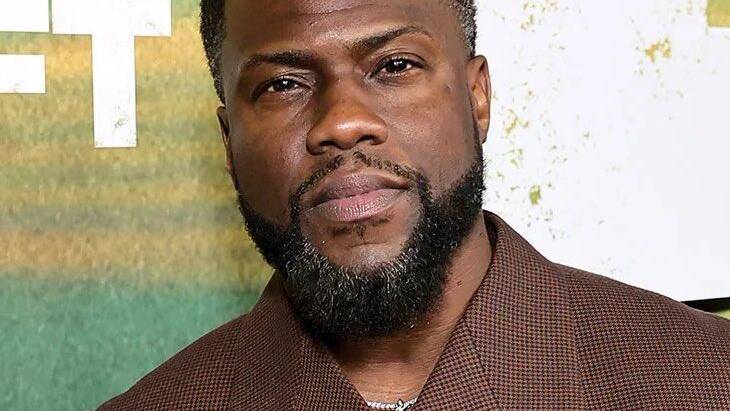NNAMDI KANU IS GUILTY BUT WHO WILL TRY THE NIGERIAN STATE?
Medium | 23.11.2025 22:53
NNAMDI KANU IS GUILTY BUT WHO WILL TRY THE NIGERIAN STATE?
A few days ago, while following the final trial of Nnamdi Kanu, the most consequential defendant in Nigerian political jurisprudence in recent times, I felt a swell of grief. Each criminal act attributed to him under the banner of the Indigenous People of Biafra (IPOB) and the analysis presented by Justice James Omotosho quickened my heartbeat, not only because it exposed the depth of Kanu’s excesses, but also because the consequences of his actions undermined the wider historical Igbo grievance.
The fact remains that Kanu upended lives. No honest person who lived through the last few years in the South East can pretend otherwise. Under his influence, entire communities were pushed into terror. A region, once regarded as one of the country’s most peaceful and economically vibrant zones, was transformed into a theatre of violence, fear, and internal displacement.
His rhetoric, amplified across broadcast and digital platforms, inspired and produced a generation of individuals who asserted his authority with bullets, machetes, and a ruthless policing of dissent. Towns were ransacked, villages emptied, and ghost settlements multiplied as natives fled the coercive intimidation of men operating under the Eastern Security Network (ESN), the armed wing of IPOB that he established as a response to marauding Fulani herdsmen.
ESN operatives enforced sit-at-home orders through violence and entrenched a climate of fear in which ordinary people became collateral victims of a political agitation that had veered catastrophically off course. By the time Kanu appeared to grasp the scale of the monster he had unleashed, following his rendition from Kenya and years of detention, it was far too late. The dynamics had spiralled into a labyrinth of actors, criminal interests, and ungoverned forces far outside his control.
In this sense, the gravity of his actions warrants the full weight of legal accountability. As the world saw through the televised proceedings, he is a man embattled by personal demons and one who became a destructive force unto others. He rejected experienced legal counsel, insulted his own representatives and carried himself with a misplaced sense of divinity. It is unsurprising that the court took the step of broadcasting his conviction. It was likely intended to expose his arrogance and lack of remorse, something he demonstrated clearly through his unruly outbursts in court that forced the judge to expel him out of the courtroom.
The verdict on him therefore offers closure, however small, to many families whose lives were torn apart. It also offers a window for all eastern governors, traditional institutions, and civic actors to reclaim public space and begin the arduous work of repairing a social fabric that has been shredded over the years. Whether they possess the will or moral courage to rise to this moment is yet to be concluded. But the urgency of principled and courageous leadership in the region is no longer a matter of debate.
Yet even as Kanu bears responsibility for the devastation wrought under his watch, another question presses itself into the centre of the national conversation: Who will judge the Nigerian state for its own crimes, crimes older, deeper, and far more structurally consequential than anything Nnamdi Kanu could ever have imagined?
To ask this is to confront the national question and historical disorder that shapes the present. Before doing so, however, it is necessary to rebut revisionist parts of the judicial narrative advanced by the prosecution team, even if Kanu himself, through his reckless utterances, made it easier to weave him into their claims. Some aspects of the judgment are historically dishonest, particularly the attempt to fold him into unrelated episodes of national unrest like the destruction of courts in Lagos during the EndSARS protests.
Nigerians remember clearly what happened in October 2020. Peaceful protesters were infiltrated by state-linked thugs ferried in government buses. These agent provocateurs attacked demonstrators across major protest grounds in Lagos, vandalised properties, and manufactured the pretext for chaos. Journalists were cut down by police fire. And when narrative manipulation faltered, the state embraced naked violence, deploying the military against unarmed citizens. That the state attempts to re-narrate this episode under the shadow of Kanu’s trial is not only an attempt to launder its own bloodletting but also a calculated attempt to keep the Igbo ethnic group fixed as the default national scapegoat.
To allow this manipulation is to forget that the Nigerian state has been the single most consistent actor in the production of insecurity. The seeds of IPOB’s radicalisation were not planted by Kanu alone. They were nurtured by decades of marginalisation, the unhealed wounds of the civil war, constitutional arrangements that entrench regional inequalities, and a federal system that offers citizenship in name but not in substance. When the state ceases to function as a guarantor of collective welfare, counter-identities emerge as alternative spaces of meaning, security, and dignity.
Get Zikora Ibeh’s stories in your inbox
Join Medium for free to get updates from this writer.
Yet it is important to recall that before IPOB’s descent into violence, it operated primarily as a non-violent separatist movement expressing grievances that had accumulated for decades. The late Muhammadu Buhari administration’s reaction — marked by vicious military raids on peaceful gatherings, arrests of unarmed supporters, and coercive shows of force such as Operation Python Dance — sharply escalated tensions and deepened the feeling of siege across the South East. In 2017, soldiers invaded Kanu’s family home in Afaraukwu, Abia State, an operation during which deaths and injuries were reported and which prompted Nnamdi to flee the country. To cap it all, the decision later that year to designate IPOB a terrorist group, without any plausible evidence beyond political sentiment, while well-documented Fulani militia groups and bandit formations continued to commit mass atrocities without equal federal pressure, further fuelled the perception that some citizens are permanently suspects in the eyes of the Nigerian state.
In the years that followed, the Nigerian government would go on to extraordinarily rendition Kanu from Kenya, a process carried out outside the framework of formal extradition law and in violation of multiple international legal instruments governing arrest and transfer. And even when its own court later ruled on the procedure, holding that Kanu's rendition was unlawful and issuing an order for his release, the state refused to comply with these directives reinforcing the perception that it had no substantive case grounded in due process.
During this same period — and as remains the case today — Nigeria was grappling with expansive national crises that exposed the state’s uneven approach to security and its lack of democratic accountability. Bandit groups overran rural and resource-rich communities, displacing thousands and disrupting agriculture and local economies. Extremist factions expanded their operational reach, and corruption scandals continued to surface across public institutions while citizens sank deeper into poverty. Farmers in multiple states were driven from their lands by armed militias as security and government agencies oscillated between denial, contradictory briefings, and responses that were either ineffective or plainly absurd.
In Kaduna, for example, Nigerians watched former governor Nasir El Rufai openly admit that his administration paid violent Fulani militias in order to appease them and stop the killings in Southern Kaduna, a troubling revelation of how the state treats ransom and negotiation with mass murderers as standard policy in the North while it criminalises and imprisons political agitations in other parts of the country.
All this context is essential to understanding the national question, the unresolved crisis that has shadowed Nigeria since the 1914 amalgamation. The post-colonial Nigerian state is one in which terms of belonging remain contested. What does it mean to belong to this country? Who belongs? On what terms? And who gets to decide? Every major political conflict since independence has emerged from grievances rooted in these unanswered questions and compounded by various structural inequalities. Nigeria remains yoked to profound mismatches in power, citizenship, and federal practice. One set of rules appears to operate in one region while another takes shape elsewhere, producing decades of resentment and distrust.
The 1999 Constitution, often touted as the grundnorm, remains a document that was never collectively negotiated or ratified by all the peoples whose destinies are bound to it. Its legitimacy has always been weakened by its origins in military decree rather than popular consent. This foundational defect feeds the uneven application of justice across the federation. Movements in the South are frequently criminalised with remarkable speed, while armed actors in parts of the North are met with accommodation or strategic leniency. Within this same constitutional framework, religious extremism thrives in several northern states under state-sanctioned Sharia systems even as the broader political order punishes ethnic, social, or political dissent elsewhere.
As long as these inequalities persist, Nigeria will continue to generate factions, insurgencies, protests, and agitations. This is the structural terrain from which figures like Kanu emerge. In this broader landscape, his sentencing, subject to appeal or future executive discretion, functions as both a conclusion and a diversion. It ends a chapter on one man’s excesses but distracts from the long history of state complicity in creating the very conditions that enable radicalisation.
At this point, the Nigerian state must be held accountable alongside Kanu, not only for the devastation in the East but for its repeated failures and chronic lack of political will in advancing the aspirations of its people.
The Nigerian state must stand in the dock of history through a deliberate political process that finally renegotiates the terms of coexistence among its many peoples. That process must deliver a new constitution, produced through a sovereign national conference or a constituent assembly made up of directly and democratically elected representatives from all geopolitical zones, and ratified by the public in a national referendum — replacing, once and for all, the discredited 1999 military decree.
It must devolve real power — security, resource control, and decision-making authority — away from an overcentralised state so that no Nigerian ever again feels like a conquered guest in their own homeland.
It must establish a legislated Truth, Justice and Reconciliation Commission with full powers to drag into the open the civil war, the massacres of communities and protesters across different moments in our history, and every calculated act of marginalisation and structural injustices that continue to shape national consciousness. The work of this Commission must culminate in a binding national record of truth, enforceable recommendations for reparations and criminal accountability, institutional reforms, and a compulsory framework for memorialisation that anchors the country to its own history with honesty and dignity.
Without such foundational reforms, Nigeria will remain trapped in a cycle of repression and rebellion. New forms of violence will grow out of unresolved historical trauma. And the legitimacy of the state will continue to corrode, leaving the country in a permanent state of rupture.









